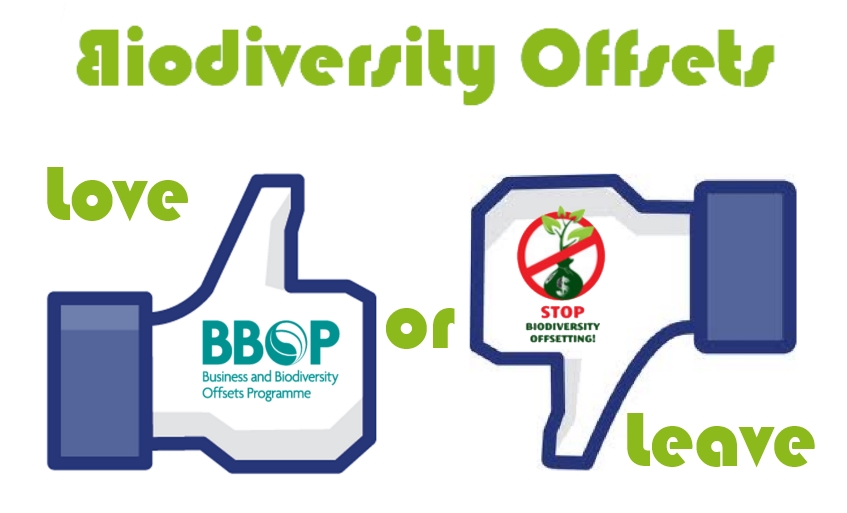No to Biodiversity Offsetting?
As biodiversity offsets become more visible in the public they are subject to a growing controversy. Critics of biodiversity offsets have a growing lobby, especially in the UK, where the government seems to rush, wanting to push through the concept of biodiversity offsets, no matter at what expense and quality.
As a result a number of biodiversity offset pilots, that have been trialed, are facing severe criticism and resistance, mostly by the local population and NGOs:
The policy is inherently flawed: biodiversity offsetting ignores the difficulties in recreating ecosystems, it overlooks the uniqueness of different habitats, and it disregards the importance of nature for local communities. (source: 2nd Forum on the Natural Commons)
Are biodiversity Offsets a License to trash?
The “license to trash” criticism has resulted in various writings (e.g. by George Monbiot in his column in the Guardian), events (e.g. Forum on the Natural Commons) and campaigning (No to biodiversity offsetting), up to a recent mockumentary[1].
Controversy: What distinguishes opponents and proponents of Biodiversity Offsets?
The distinction between opponents and proponents in the current discussion comes done to a question of framing.
There are on the one side the opponents who argue from an ethical and moral (or even philosophical) perspective that biodiversity can’t be measured and valued in economic terms and by its very nature is irreplaceable and thus not offsettable.
On the other side the proponents of biodiversity offsets take a more pragmatic view claiming that biodiversity offsets are inevitable whenever development takes place.
Where are we now and where to from here?
While certainly both sides are making a point, neither side has managed the issue so far: the first one is lacking to suggest solutions (while getting the bigger picture right) and the second is suggesting possibly weak solutions (that don’t get the bigger picture).
A weak point is that the discussion about biodiversity offsets as a concept isn’t held in academia, but more as a societal discussion – loaded with emotions and value judgments.
It is certain that biodiversity offsets concern many people. And therefore it is good that the discussion is held in public. But the “hustle and bustle of quickly picked arguments” that can be frequently observed doesn’t help very much.
So, Biodiversity Offsets — whether you love or leave them — should become subject of a “well-informed debate” instead.
[1] A fiction film done in a parodic documentary style (Clark 2002)


Pingback: 15 ways how you can contribute to the Biodiversity Offsets Blog - Biodiversity Offsets Blog
Leave (not love!) over simplifying ecosystems — we don’t need more trees we need robust habitats and systems everywhere!
Thanks Jo for your comment. You are in fact pointing out a very crucial point, i.e. we need to focus on the QUALITY of an ecosystem rather than the QUANTITY (and any mathematical relations or calculations that a No Net Loss approach might imply) first! However, I am not saying, that people doing offsets aren’t aware of this, but I think it is vital to remember that biodiversity offsets are in a trap between (necessary?) standardization and harmful oversimplification…